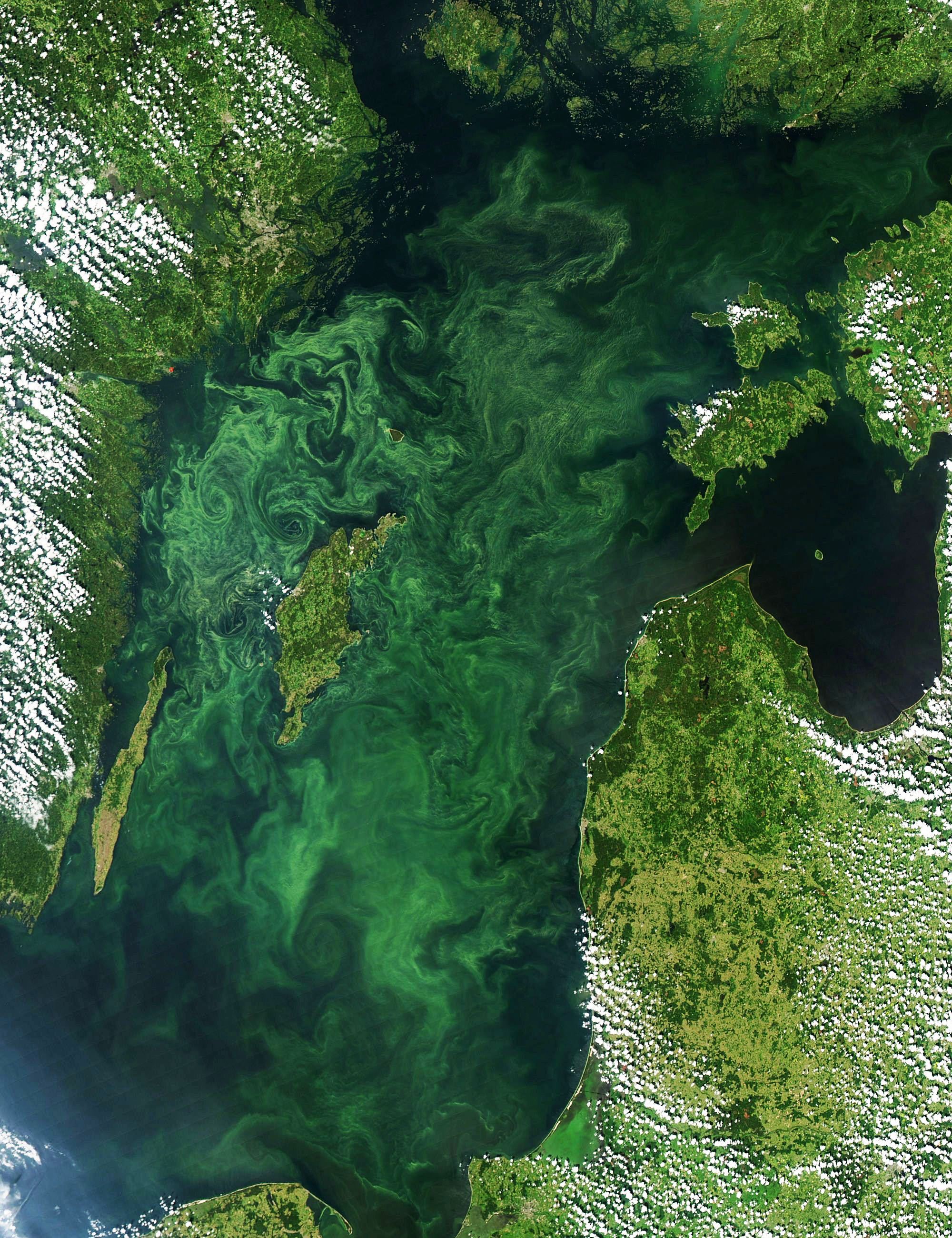Marine life at risk
The Northern Dimension area boasts vast natural resources, a unique biodiversity in its seas and rivers and some of the last untouched European forests. However environmental degradation is causing increasing concern. The low temperatures of two of the region’s seas, the Baltic and the Barents, make them particularly sensitive to environmental degradation and this is exacerbated further by low salinity and shallow waters in the Baltic Sea.
 The Baltic Sea is threatened by eutrophication, which reduces the oxygen in the water and damages the health and diversity of indigenous fish, plant and animal populations. Phosphorus and nitrogen from poorly treated wastewater and agricultural waste has led to excessive growth of algae in the sea waters which deprives other living organisms of oxygen when it decomposes and produces marine dead zones. The Baltic Sea has changed over the years from a clear water marine environment to a sea with noxious algal growth in most parts. The narrow strait of water of the Gulf of Finland – shared by Finland, Estonia and Russia – has been particularly affected.
The Baltic Sea is threatened by eutrophication, which reduces the oxygen in the water and damages the health and diversity of indigenous fish, plant and animal populations. Phosphorus and nitrogen from poorly treated wastewater and agricultural waste has led to excessive growth of algae in the sea waters which deprives other living organisms of oxygen when it decomposes and produces marine dead zones. The Baltic Sea has changed over the years from a clear water marine environment to a sea with noxious algal growth in most parts. The narrow strait of water of the Gulf of Finland – shared by Finland, Estonia and Russia – has been particularly affected.
Environmental window
Improvements to wastewater treatment are the primary concern of NDEP’s environmental window, however other challenges regarding low energy efficiency and poor management of municipal and agricultural waste are also included in its programme. The selection of projects is based on the sources’ environmental effects, whether it has direct cross-border impacts, and on local and regional priorities.
To help protect biodiversity in the Baltic Sea the NDEP works in close cooperation with other international initiatives in the region. From the outset NDEP drew on the work of HELCOM and its Baltic Sea Joint Comprehensive Environmental Action Programme (JCP) which focused on tackling environmental ‘hot spots’ to restore the ecological balance of the Baltic Sea. Currently HELCOM is leading the Baltic Sea Action Plan (BSAP) which aims to restore the ‘clear water’ status of the Baltic Sea by 2021 through a coordinated approach of all stakeholder countries signing up to their own national commitment plans. The NDEP is a natural continuation and extension of this Programme.